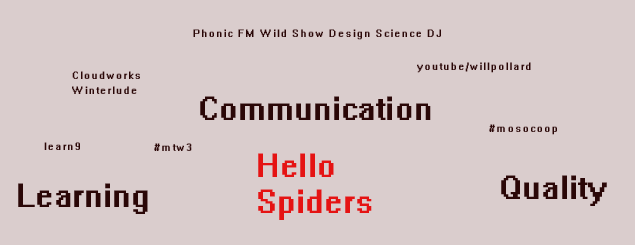Today's media Guardian confirms the impression that UK media are not that interested in Hunt's proposals last week for local TV based on cities as in the USA. There is some information now, but mixed with a lot of rerasons why nothing much should happen.
Google blog search finds the Guardian through Newsbucket. Steve Hewlett states that the promise is "near impossible to deliver". Not enough resource and not enough reason for existing players to support another national choice that local could drop into.
Other things could be possible in future but that would depend on the availability of fast broadband to provide low-cost distribution.
This seems to be the view in the briefing as well. So online will follow maybe in 2015 or sometime later. It is probably true that UK bandwidth is not uniform throughout the UK at reasonable speed. But if the new channels will start in the main cities anyway then fibre is possible. I think the little bits of video that turn up on YouTube could develop further over the next three years or so. Rougemont Global Broadcasting could become some sort of demo if I can load up more stuff. It is actually global as some viewers are outside the UK. If Hunt is assuming UK broadband is not urgent, then this could be moreso.
I think the BBC should stay in the mix. On BBC News 24 Hunt seemed to be suggesting the BBC should just get out of the way and then the market would solve all the issues. But if the BBC is expected to provide the resources then this could take the form of support for local video efforts. Some training perhaps and a sound track from major events. The Web is not based on monopolies such as the only evening newspaper in Manchester. There is a lot of space for the BBC and stuff online. I remember the Guardian very opposed to the BBC providing materials for schools. Then the BBC backed out of BETT. But the Guardian stand just got smaller.
On the Web, the BBC is the only UK brand on any sort of scale. Knocking the BBC is not going to help much for other media.
Anyway, back to some other links from Google blogsearch
Based on the economic models that Mr Hunt seems to be adopting, each hour of local news will have to be provided for somewhere around £2,000. That is a fraction of what ITV and the BBC spend on their regional news operations. And all the cheap new technology in the world can’t replace some of the things that the traditional TV channels spend that money on: properly trained journalists and editors with seasoned judgment.
It has been suggested that students or volunteers could man these new local services. What happens, I wonder, when one of those volunteers commits a contempt of court live on air by saying too much about someone who has been accused of a crime in the local area? What happens when one of those students inadvertently libels someone? What happens when an overenthusiastic – and unpaid – presenter jeopardises a local service’s impartiality by being too tough in an interview with a city councillor?
Should the venture launch in 2015 as planned, newspapers will taunt the government with early viewing figures registering “zero” on Barb and the lack of original programming – only two hours of regional “opt-outs” are expected a day with the channel running on repeats donated, it is hoped, by terrestrial broadcasters.
You can imagine headlines asking why the BBC is wasting millions of pounds on “channel zero” – it happened when BBC Three and Four launched and even those channels still only have around 90 minutes of first-run, originated programming a night.
At a later panel session there were a number of sceptical responses to the idea, balanced by enthusiasm from local television companies such as Channel Six. Tim Brooks, managing director of Guardian News & Media said the idea that the network could be commercially viable was "sheer fantasy".
He said: "Let's be real. The largest television company in Europe [RTL] couldn't make enough money out of Channel Five, the third network to make a go of it.
"I think the idea that there's room in this market for a fourth network whose peaktime would be occupied by the kind of low grade programming that the panel discussed is sheer fantasy.
"That's why you won't see Jeremy Hunt bowled over in the rush of people with money wanting to get involved in his project."
It seems to me that if there is so much instant rejection there may be a basis of something that might take some advertising revenue. So worth investigating.
Greg Dyke is mentioned as interested. i wonder what happened to the BBC Archive ideas, as in content that would be free for reuse? This is the sort of thing the BBC should be doing. The "big society" could be not just about chaos and handing over public money to companies. Especially for projects in which they are not very interested.
